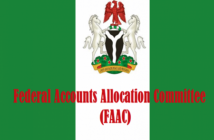Executive Director of Media Rights Agenda, Mr Edetean Ojo, has pledged technical support for journalists who engage the freedom of information act to demand information from public institutions within the country.
Ojo made the disclosure while speaking to journalists from the Southeast and South-South states at the end of a two-day workshop on “Using the Freedom of Information Act for Investigative Reporting”, held in Enugu, organized by the Media Rights Agenda (MRA) with support from the MacArthur Foundation through the Wole Soyinka Centre for Investigative Journalism (WSCIJ) under the Collaborative Media Engagement for Development, Inclusion and Accountability (CMEDIA) project.
The journalists in their communique called for the amendment of the cybercrimes act used by law enforcement agencies and government officials to harass and constrain the activities of media practitioners.
They expressed concern that journalists were facing increasing threats to their safety and wellbeing as well as the safety of their family members arising from powerful figures who were displeased with media reports which expose their wrongdoing.
According to them, there was a need to provide journalists with appropriate safety training to help them properly protect themselves against these threats, adding that there should be concerted efforts by governments at different levels and other stakeholders to prevent attacks against journalists, to protect journalists who were been threatened or attacked and to ensure that perpetrators of attacks against journalists were appropriately prosecuted and punished.
The participants acknowledged that the usage of the FOI act by journalists and the media in general had been less than optimal despite its potential benefits to the media sector in seeking and obtaining information.
They pledged commitment to beam their searchlight on the activities of all public institutions, especially regulatory bodies and agencies, in order to hold them accountable to the public, and called on their colleagues in the media to do same.
This according to them include regular scrutiny of the activities and finances of public institutions, assessment of their level of performance of their functions as well as to evaluate their effectiveness in terms of the achievement of their set goals and objectives.
Further, they acknowledged the importance of investigative reporting in exposing corruption, abuse of power, and other wrongdoing, even as they noted that most media organizations lack the requisite resources to fund such investigative reports which can be time-consuming and expensive.
The objective of the workshop was to sensitize participating journalists and build their capacity to effectively use the freedom of information (FOI) act for investigative reporting by familiarizing them with the key provisions of the act and how to make effective use of it to seek and obtain information from public institutions and other relevant entities.




